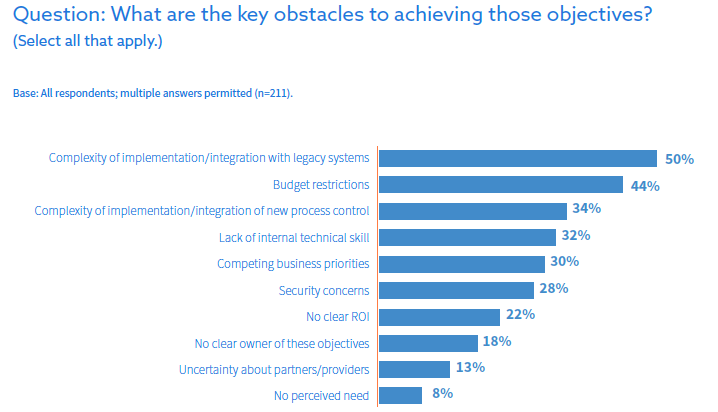
It’s notable that three of the top four responses indicate that the complexity of
implementation/integration is the biggest obstacle to achieving Industry 4.0 objectives.
A majority of respondents cited the complexity of implementation/integration with legacy systems and, in third place, the complexity of implementation/integration of new process control solutions is cited by 34 percent. In fourth place, 32 percent say the biggest obstacle is lack of internal technical skill.
Though budget restrictions ranks second, cited by 44 percent, these results suggest that though companies are increasingly embracing Industry 4.0 technologies—such as the cloud, cybersecurity and industrial internet of things (IIoT)—to digitize their operations, improve customer engagement and secure competitive advantage, they are challenged by the difficulty of integrating the new technologies. As a result, companies risk failing to fully exploit the capabilities the new technologies can provide.
These warning concerns include no clear ROI, cited by 22 percent of respondents, no clear owner of these objectives (18%) and uncertainty about partners/providers 13 percent. As organizations learn more and become more comfortable with new technologies, it’s expected that barriers will be overcome and concerns will be alleviated.
Significantly, only eight percent of respondents indicated that they saw no perceived need for adopting Industry 4.0 technologies.
